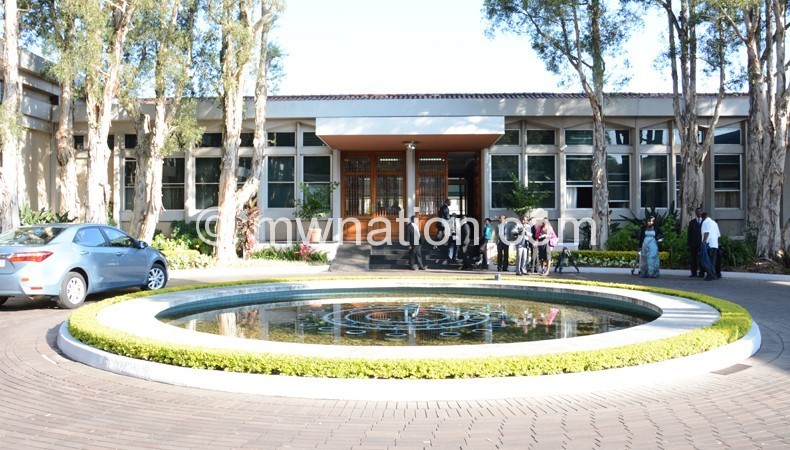State Residences vote passed
Parliament on Monday approved a K5.4 billion (US$12 million) allocation to State Residences amid resistance on two activities of construction of two banquet halls and agricultural inputs.
Vote 050, the State Residences one, is usually the most contentious allocation at every budget meeting as opposition members of Parliament (MPs) give it the most scrutiny and that was the case again on Monday.

Mzimba South-west MP Khumbo Kachali (independent) asked Minister of Finance, Economic Planning and Development Goodall Gondwe to consider reallocating the K500 million towards construction of banquet halls at Sanjika Palace in Blantyre and Kamuzu Palace in Lilongwe.
Queried Kachali: “Why is the construction of banquet halls so important at this time when so many budget allocations have been drastically reduced?”
Kachali, immediate past vice-president during former president Joyce Banda’s two-year tenure, received support from Rumphi East MP Kamlepo Kalua (People’s Party-PP) who repeatedly described the allocation as meant for “malo a chisangalaro” much to the consternation of First Deputy Speaker Esther MchekaChilenje who asked him to address the House in English.
In his explanation, Gondwe said describing the allocation as banquet halls was an anomaly because the two State Residences already had built-in banquet halls which, over the years, could no longer accommodate a large number of guests.
To placate the opposition side, specifically the Malawi Congress Party (MCP), Gondwe said Kamuzu Palace in Lilongwe, which was still under construction when founding president the late Hastings Kamuzu Banda was in power, had a foundation for a banquet hall outside of the palace.
He said: “We have been relying on marquees which have proved dangerous to people, so we want to go back to what Kamuzu had originally planned and construct a separate place for such State events.”
On why such an activity should enjoy a large allocation at a time when other government departments have had their funding reduced, Gondwe explained that as State structures, State Residences were an indication that the State was functioning.
After a lot of debate before it was eventually passed without amendment, Gondwe deferred votes on the National Audit Office (NAO), the Judiciary, National Assembly, Assets Declaration, Office of the President and Cabinet (OPC) and the Department of Human Resource Management and Development.





